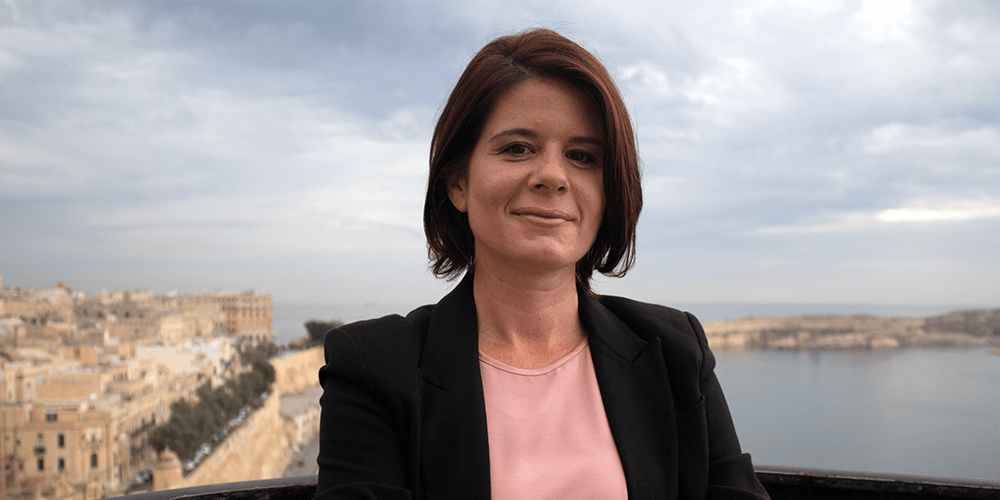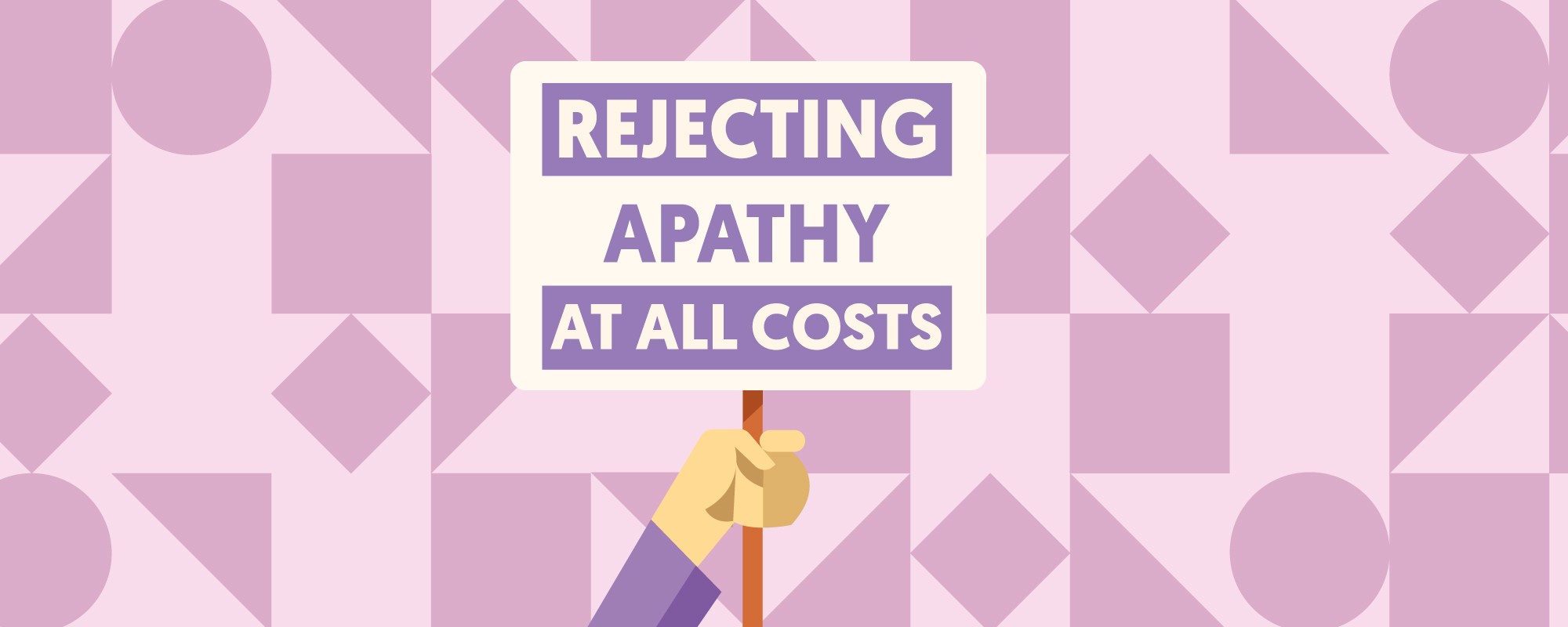Now an unwavering campaigner for women’s rights, lawyer Dr Lara Dimitrijevic tells Teodor Reljić about how the academic community’s action, inaction, and reaction to injustice shaped her life and activism.
From hurdles in reporting domestic violence to Malta’s budding pro-choice movement, hardly any discussion on women’s freedoms goes by without a word from family lawyer Dr Lara Dimitrijevic. Recently nominated for the US Secretary of State’s International Women of Courage Award, Dimitrijevic represents mistreated women in court. She has also founded vocal NGO Women’s Rights Foundation, which trains police enforcement, the judiciary, social workers, lawyers, and activist organisations to treat victims of gender-based violence fairly.
When we caught up with Dimitrijevic to speak about the intellectual and academic origins of her life’s trajectory, the idiosyncrasy and emotional wallop of her story did not disappoint. As she pointed out in her TEDx talk at the University of Malta, she found her life suddenly revolving around the question of choice. Like most of her peers, Dimitrijevic enrolled at university after she turned 18. ʻI was very undecided as to what to pursue back then, and ended up picking philosophy and classical studies. It was also during this time that I met my husband-to-be,ʼ she tells THINK.
Dimitrijevic ended up cutting her studies short after falling pregnant with her first child, while her husband continued to work on his degree. ʻFast forward four years later and two kids in tow, and I was back, pursuing a degree in law,ʼ she speaks as we discuss her return to campus.
ʻOpting to go back to university was certainly not a straightforward decision. At first I wasn’t even sure it was the right choice to make at the given time, but I did know that deep down, it was something I very much wanted to list among my accomplishments in life.ʼ Growing up ʻin a family of lawyersʼ, with both her siblings practising the same profession, Dimitrijevic may have had ambiguous feelings about the course she was about to undertake.
But what if we didn’t fast-forward at all? The ‘slower’ story of Lara’s return to university was not just academic and professional angst.
ʻThe three years leading up to that second enrolment were very tough on my family. My son was diagnosed with a rare form of cancer when he was just two years old. We were told that there is no cure for it, and that there were only two options facing us at this point: remission, or death. My husband and I had no idea what had hit us. We had just had our second child…ʼ
Nights became my best friend. I loved the moment that kids were put to bed — around eight o’clock — and I would spend the night researching and reading.
Dimitrijevic recounts the harrowing daily ordeal that her family had to confront in the years following the earth-shattering diagnosis. ʻI spent weeks in hospital with my son, having to watch his little body grow thinner and thinner and feeling utterly helpless.ʼ
Thankfully, the only possible physical outcome of this ordeal did indeed come to pass. ʻThree years later, we were told that he was in remission. It was at this point that we felt like we needed to make some changes in our lives. For me, this meant returning to university.ʼ
Family responsibilities did not disappear. ʻThe kids were still very young, just over two and four years old. Nights became my best friend. I loved the moment that kids were put to bed — around eight o’clock — and I would spend the night researching and reading.ʼ
According to Dimitrijevic, the course assignments weren’t all that bad. ʻIt was having to memorise the never-ending list of case law — dates and all — which took me a while to get used to!ʼ
For Dimitrijevic, learning all about the justice system was not merely an intellectual adventure. ʻI was a young teen mum, but I was privileged — unlike the women I met in my life. So what about them?ʼ she said of the origins of her activism during her TEDx talk.
For these reasons, the lack of critical insight — both from lecturers and fellow students — was what rankled hardest. ʻOne thing that I can say frustrated me was complacency, the lack of critical thinking and activism among students, and, to a certain extent, lecturers, within the Faculty of Law at least. Most lecturers would spoon feed us. We were expected to write what was being dictated to us. There was very little room for discussion,ʼ Dimitrijevic recalls.
Wake up, shake up. Engage, plug in, and speak up.
ʻComparing this to my younger years, as students, we were by far more active and vibrant. We organised protests and marches and spoke out loudly, albeit at times in an illegal manner. I was arrested during one of the protests we had organised and was later released. That not being enough, the following day we chained ourselves and went on a hunger strike.ʼ
The apathy took on a more raw and personal edge when a mentor of Dimitrijevic’s and director at Jesuit Refugee Services, Dr Katrine Camilleri, was attacked in what appeared to be a hate crime. ʻShe is one of the most emphatic and caring people I know. She lectured refugee law, a credit that I had selected in my fourth year. The credit and her passion very much shaped who I am today.ʼ In fact, Dimitrijevic volunteered with the organisation then, and continues to foster that relationship to this day.
That attack on Camilleri and the burning of three vehicles owned by the Jesuits in 2005 and seven in 2006 was met with understandable bitterness on Dimitrijevic’s part. ʻI was fuming. This was an outright attack fuelled by racism, and yet I was stunned to see how there was no reaction from the students. No one was interested in marching in solidarity, nor issuing a comment.ʼ The perpetrators are still at large.
The institutionalised indifference she saw at the University of Malta, coupled with the tangible academic and professional benefits of the law course, strengthened Dimitrijevic’s resolve to fight for justice.

With that in mind, how does she see campus politics today? ʻI think that today, young people seem to have more thirst to discuss,ʼ she says, also attributing the rise of a more outspoken student body to the awareness-raising capabilities of social media. ʻNow, students are more engaged with social issues and keener to voice their opinion.ʼ
ʻI could not bear to be silent nor silenced. I had spent six years studying law, and the word “justice” was drummed into me over and over again. As a result of that, I could not just sit idly by and observe injustice being done.ʼ
Being no stranger to the campus ever since graduation, she calls for young people to shed their fears and reservations. ʻWake up, shake up. Engage, plug in, and speak up. Don’t let anyone scaremonger you or belittle you. You are the future and you are the change. Get yourselves involved in organisations and the causes that are close to your heart.ʼ
Sound, time-tested advice from someone who clearly walks the walk.





Comments are closed for this article!